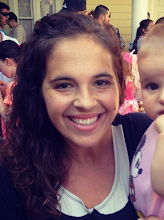Mario Puzo's The Godfather chronicles the Corleone family in the decade following World War II. Michael, the youngest son, does not want to enter the family business; Sonny, the eldest son, prepares to take their father's seat as Don; Fredo, the middle son, seems to not really have much of a place in the family. The book opens at the wedding of the youngest Corleone, Connie.
 |
| Fredo Corleone, the original Jan Brady |
The most dynamic characters are, of course, those who have the most complicated relationship with the Corleone family. Michael, for one, feels pulled in many different directions, and his actions really demonstrate the uncertainty that (I imagine) many men were feeling when they returned from WWII. Tom Hagen might be the most complex character, as he is the "outsider" who really managed to make it on the inside. He is neither a Corleone nor Italian, but an Irishman. The relationship that Tom shares with each of the Corleone major players - Vito, Sonny and Michael - reveals the strength of his character as well as the inevitable otherness of anyone who isn't Sicilian.
Like the development of Vito Corleone's various schemes, the story unfolds in a way that never feels rushed or forced. You want to read the book, because you care about this family, even though it is mostly composed of complete antiheroes. You feel compelled to turn the page, as though the Don Himself is sitting on your shoulder, reassuring you that this is the right thing to do, and getting you to see the rationale behind some of the less savory acts in the book. You feel like Michael is resisting the urge to embrace the lifestyle of his family, until the moment when he sort of falls into it. He ends up being so amazing at it, you wonder how he ever thought that he could avoid this inevitability in the first place. And if you can actually read this book without picturing young Al Pacino as Michael, then you've actually never seen any references to the movie (and you're probably living under a rock or in the actual past). Even the casting of Al Pacino as Michael seems to be one of those "duh" moments. Of COURSE he's Michael. He has always been Michael. It's the same with Michael. He has always been the Don.
Easily one of the best books I've read this year, and possibly one of the best books that I've read in a long time, I would enthusiastically recommend that you read this book. It really is an offer you can't refuse. Unlike when the Don makes you that kind of an offer, I really think that you'll be happy you agreed to this one.







